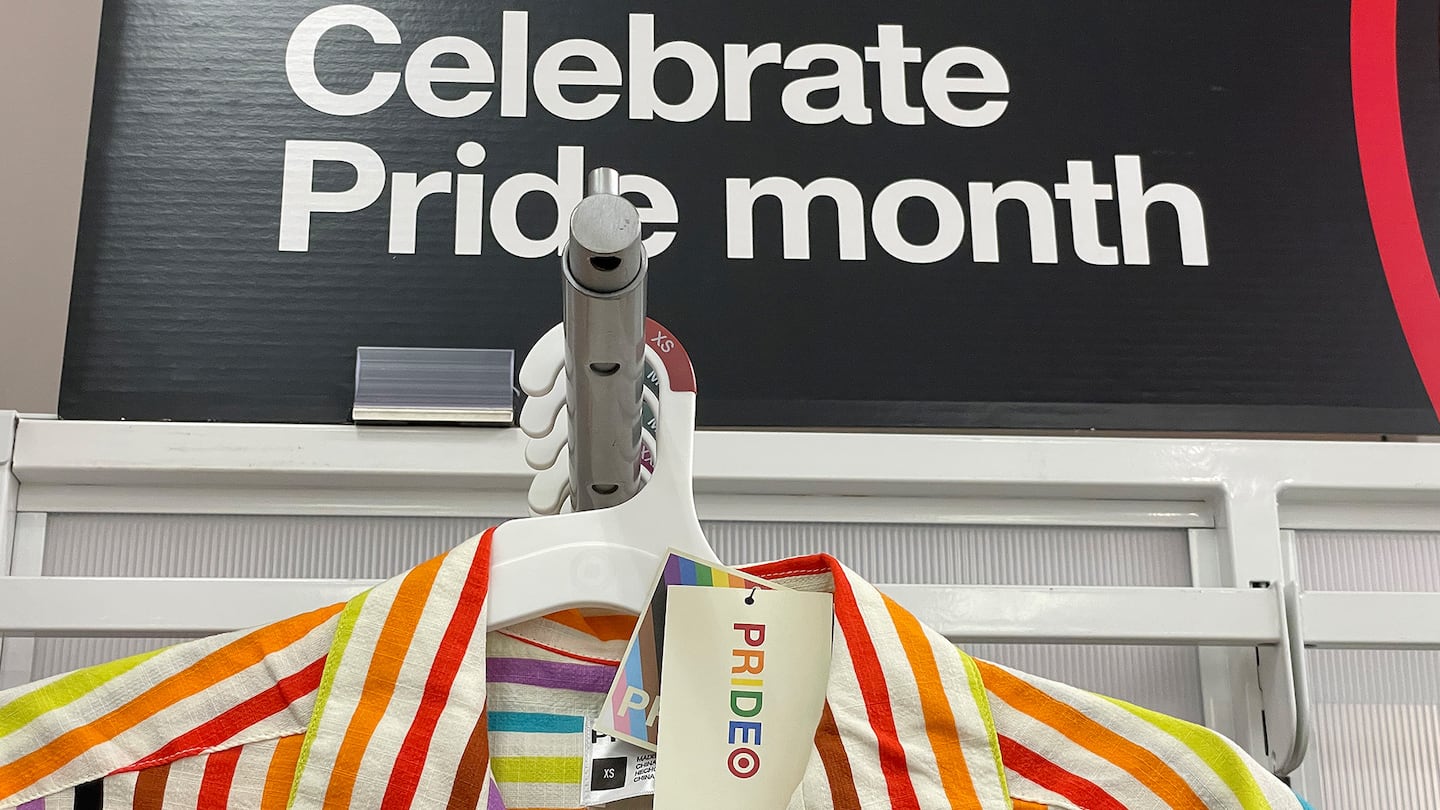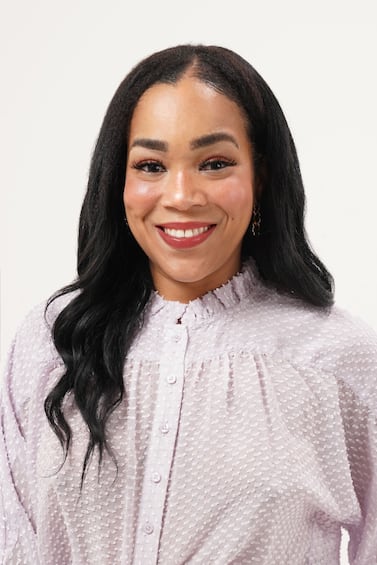
The Business of Fashion
Agenda-setting intelligence, analysis and advice for the global fashion community.

Agenda-setting intelligence, analysis and advice for the global fashion community.

Last month, Rob Smith, founder and chief executive of the gender-neutral clothing company The Phluid Project, shared some advice on Linkedin to large retailers preparing to roll out their Pride Month campaigns: “All storefronts or no storefronts.”
“To show up and put a flag in your window or in your storefront in just big cities doesn’t do anything,” Smith said. “Showing up in those small towns is what takes courage — it’s not commendable to pick and choose places that are liberal.”
Smith told BoF that he has some additional guidance after a turbulent stretch where companies have faced attacks from conservative activists both online and in stores for their Pride displays: “be prepared for backlash, have a plan and double down.”
Retailers’ commitment to activism is being tested right now. Last month, Target removed certain Pride items and shifted displays in some locations to less-visible spots after it came under fire from anti-trans activists (the chain carries Phluid’s clothes among its 2,000 Pride-themed items). Conservative politicians have called for penalties on companies that in their eyes go too far in their diversity, equity and inclusion efforts.
ADVERTISEMENT
For the most part, Pride Month has proceeded as usual: companies from Macy’s to Primark have launched marketing campaigns, and brands like Levi’s, Ugg and Abercrombie & Fitch released their latest LGBTQ-themed collections. Many are also planning campaigns around Juneteenth, a date commemorating the emancipation of slaves that became a federal holiday in the wake of the 2020 Black Lives Matter protests.
But others are reaching the conclusion that it’s better to stay out of the fray. The Wall Street Journal reported that mentions of “environmental, social and governance,” “ESG,” “diversity, equity and inclusion,” “DEI” or “sustainability” by executives on hundreds of earnings calls between April 1 to June 5 are down 31 percent from the same period last year, according to the financial-research platform AlphaSense.
Those newly silent executives are being short-sighted, some experts say. Even now, consumer brands usually have more to gain than to lose from engaging with divisive cultural issues; the opposition may be louder for the moment, but young shoppers’ support for LGBTQ rights and racial justice hasn’t wavered.
“This is actually a gigantic opportunity for fashion and beauty brands,” said Fabrice Houdart, founder of his namesake LGBTQ organisational consulting firm, which works with Fortune 500 companies. “Any company that now has an external engagement on LGBTQ+ issues, is not only showcasing their purpose but also saying ‘look, even in a difficult context, we’re still standing for the community.’”
BoF outlines five key lessons fashion and beauty companies can take forward.
Up until this year, brands worried more about how their efforts would be viewed by supporters of progressive causes. Many retailers were accused of hollow campaigns that primarily aimed to get access to Black and LGBTQ consumers’ wallets.
This year’s conservative backlash hasn’t diminished the need for retailers to calibrate their campaigns to offer support for minority communities, not just convince them to shop more.
Last year, for instance, Old Navy pulled its Juneteenth campaign after several Black influencers alleged the company offered meagre pay for their work. Many retailers have faced scrutiny over the years for selling Pride merchandise but not donating a portion of sales to support the LGBTQ community.
ADVERTISEMENT
“Brands should start these [efforts] with the principle of ‘do not harm,’” Houdart said. “You have to be sure whatever you do is actually helpful to these communities.”
Authentic engagement with the LGBTQ community and other minority groups consists of robust marketing campaigns, products and services dedicated to Pride and occasions like Black History Month, National Hispanic Heritage Month and Asian American and Pacific Islander Heritage Month.
But the best originate from companies that have a strong internal culture around inclusivity and acceptance, Smith said. Buy-in must start from the CEO and board members all the way down to consumer-facing employees.
When selecting LGBTQ and BIPOC endorsers, companies should avoid the knee-jerk reaction of picking “the person with the most followers,” Smith said. Marketing teams should identify celebrities and influencers whose message and image actually align with the brand’s, or risk appearing performative, he noted.
An airtight campaign whose value speaks for itself is also easier to defend if a backlash emerges from either side of the political spectrum, experts say.
“When you do a campaign like this, there is a risk that you’re going to be called out,” Houdart said of LGBTQ activations in particular. “Your campaign should be so solid that you’re not going to retreat as soon as there is a little pushback. You’re going to stand for what you’ve done, and you’re going to have a communication plan.”
Anti-LGBTQ groups have gotten more organised and, increasingly, have the backing of prominent national politicians and media in a way that wasn’t as true up until the last two years, experts say.
The past few months have seen anti-LGBTQ extremist groups “shift their focus” to corporations that have positioned themselves as LGBTQ allies, said Lindsay Schubiner, director of Programs at Western States Center, an anti-extremism watchdog.
ADVERTISEMENT
Anti-LGBTQ demonstrations have more than tripled in the past 15 months compared to the previous two-year period, according to data analysed by Western States Center. The Trevor Project, a non-profit that supports LGBTQ youth and partners with fashion firms like Macy’s, Abercrombie & Fitch and Kate Spade, has tracked more than 600 pieces of anti-LGBTQ legislation that have been introduced in the US so far this year; the organisation said.
Backlash against companies can also be seen as a reassuring sign of “just how much power corporations have to make a change,” said Sofi Goode, senior manager of Corporate Partnerships at The Trevor Project.
Companies should anticipate this pushback, Schubiner said, and avoid sending the signal to extremist groups that their scare tactics are working.
While most social media banter can be safely ignored (brands may choose to filter or limit hateful comments), companies should keep an eye out for “physical threats and intimidation” on all of their channels, she said.
“Things that start out as only online can move to offline quickly and easily,” Schubiner said.
Physical threats, including the bomb threats Target reportedly received, should always be taken seriously. But “rather than caving,” companies should have a safety plan in place — which includes additional security measures and employee training — to ensure their customers and staffers are protected, she said.
Companies must be “consistent and steadfast” in their activism and be “willing to explain their values” to both their customers and employees, said Casey Pick, director of Law and Policy at the Trevor Project.
True allyship, Pick said, is practised and demonstrated “365 days a year,” not just during tentpole events. When Nike stood by ousted NFL player Colin Kaepernick and the Black Lives Matter movement in 2018 — two years before the death of George Floyd made such a stance more readily acceptable, if not embraced — the brand endured shoe-burning and calls for a boycott. But it ultimately saw a revenue bump stemming from the activism.
Conversely, this month Bud Light lost its ranking as the No. 1 selling beer in the US after it appeared to back down from its decision to collaborate with transgender influencer Dylan Mulvaney. When Mulvaney posted about her partnership with the beer brand in April, the company was hit with a stream of backlash and calls for a boycott from conservative politicians, social media posters and musicians Kid Rock and Travis Tritt. In response, Bud Light placed two marketing executives who were reportedly behind the campaign on leave. The boycott by conservatives hurt sales but the brand also sacrificed any goodwill from the pro-LGBTQ side.
Companies should “own their journey,” acknowledging mistakes and shortcomings without stepping back from allyship, Goode said.
“A company doesn’t have to be perfect to be helpful,” she added.
While the uptick in militancy has forced companies to give greater attention to their safety protocols, companies who are truly committed to gay rights are mostly “business as usual,” Houdart said.
“The better question is not ‘when should we back down?’ it’s ‘how can we make this work?’” Schubiner said.
The official calendar included the largest number of Black designers to date, but small production budgets, a dearth of media coverage and an overwhelming sense that Black creatives’ biggest supporters continue to be other Black and brown people has left much to be desired.
Target, Maybelline and others have been caught in an anti-trans backlash. How they respond could shape perception around their brands. That, plus what else to watch for in the coming week.
The tournament is an unparalleled marketing opportunity, but host country Qatar faces allegations it mistreated migrant workers and LGBTQ+ citizens. Fashion has mostly stayed out of the discourse.

Sheena Butler-Young is Senior Correspondent at The Business of Fashion. She is based in New York and covers workplace, talent and issues surrounding diversity and inclusion.
Discover the most exciting career opportunities now available on BoF Careers — including jobs from Gucci, Simone Rocha and Bloomingdale’s.
BoF spoke to HR executives and talent experts at Alexander McQueen, On and Deckers Brands — global employers currently recruiting on BoF Careers — to understand what skills are most relevant to the fashion industry and how to upskill in them in the workplace.
The nature of working in retail is changing at pace as the purpose of stores continues to evolve. BoF Careers examines how in-store employees can hone and develop their skill sets for success in retail or its adjacent industries, sharing expertise from retail leaders and fashion executives who began their careers on the shop floor.
A tailored recruitment service offering specialist support to secure top-tier talent for your open roles — from entry-level to C-suite positions across fashion, retail, luxury and beauty.